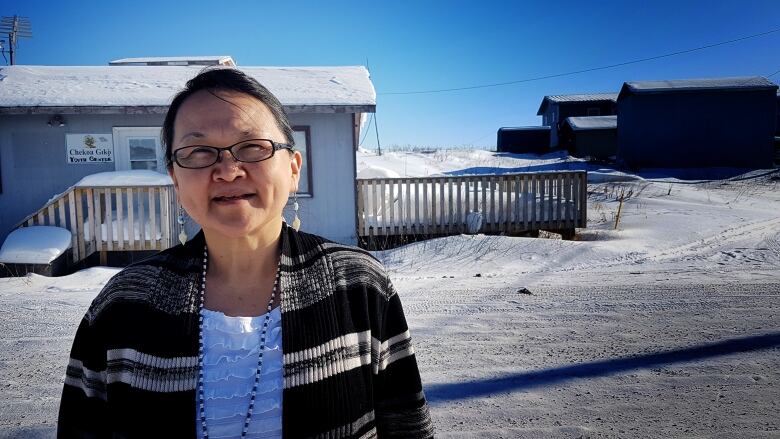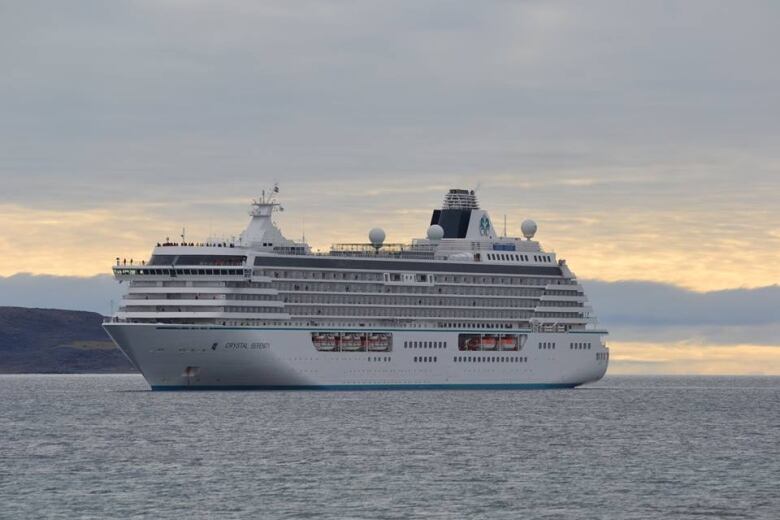Cultural renewal through cruise ships? Alaskan city shares plans at On The Land Summit
Why dont we start equipping our local people to make these things?

An Alaskan community believes the rise of northern cruise ships can play a leading role in preserving traditional crafts.
Like many coastal settlements in northern Canada, the U.S. city of Nome population 3,800 welcomed its first cruise ship last summer in Crystal Serenity, a 1,000-passenger liner. More cruises are expected this summer.
In response, Nome's cultural centre is helping Indigenous residents who want a share of the growing market for local gifts.
"We are going to be holding classes and hiring local people," said Colleen Reynolds, from Nome's cultural centre, which is partnering with the local community college to hire instructors.
Local Indigenous arts and crafts include grass and birch basket-making, as well as carving from walrus ivory and whale vertebrae.
"We had a meeting where we said, 'why don't we start equipping our local people to make these things?' We want our people to learn these skills and sell them directly to the passengers," added Reynolds.

"In our smaller communities, we all know the extra money is a help to families when there aren't that many jobs in those villages. If we teach one person, that person can go out and maybe teach two more."
Courses will also teach residents to acquire their own business cards and apply an authentic seal to each product they make. Students who sign up will earn educational credits alongside new skills.
Tips on tanning
Reynolds is a delegate and speaker at this week's On The Land Summit in the Northwest Territories community of Dettah, supported by all three of Canada's territorial governments and sponsored by Health Canada.
Around a hundred on-the-land programmers and experts from across the Arctic are sharing their experiences and best practices.
While Reynolds believes coastal communities in the Canadian north can learn from Nome's plans, she is also taking some tips home to the United States.
"I hear about the wellness camps in the N.W.T. what they're revitalizing and bringing back and I'm taking notes, because there are a lot of similarities between us and the Indigenous people here," she said.
"An example is the tanning of hides. We get a lot of different types of seals: with the fur, we dry them and usually send them out to get tanned, which is a lot quicker, but they use chemicals.
"Then there is the old way of doing it, with the scraping tool. I would like to bring that back to our people."
Long-term outlook
The summit, held over three days, is attempting to reflect its subject matter by holding many workshops and sessions in bush tents rather than conference rooms.
Some delegates are being transported to and from the summit by dog sled or snowmobile.
Common themes on the summit's first day included a desire for longer-term funding arrangements, to combat uncertainty around programs funded on short-term event-by-event or year-by-year bases.
"We've got a good start. We've got $1.2 million we're investing into on-the-land programming," said Glen Abernethy, the N.W.T.'s minister for health and social services.
"As we learn more and hear more from communities, as we see communities start to roll this out more, we need to make sure we're bringing in adequate resources. I think there's room to do more, but we have to listen."
Separately, on Monday, a coalition of funding bodies announced more than $600,000 in funding for N.W.T. on-the-land programming.
The N.W.T. On The Land Collaborative, comprising various government agencies alongside non-profits and diamond mines, will hand out an average of roughly $18,000 to 35 projects.












_(720p).jpg)


 OFFICIAL HD MUSIC VIDEO.jpg)
.jpg)



























































































